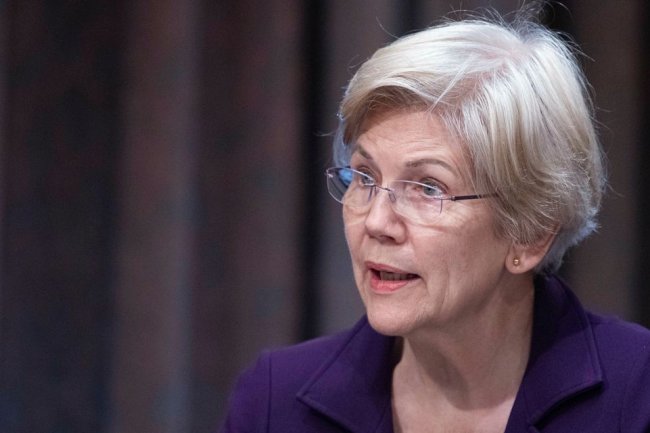Liberals Can’t Comprehend Black Economic Progress
It undermines the argument that society is stacked against racial and ethnic minorities. By Jason L. Riley July 11, 2023 6:26 pm ET An employee stocks meat products at a Walmart store in Washington, May 18. Photo: michael reynolds/Shutterstock The black American worker has had a pretty good run in recent years, though you might not know it because the political left and its allies in the press prefer to accentuate black struggle. Racial inequality shouldn’t be ignored but neither should black progress. Between 1963 and 2012, unemployment averaged 5.1% for whites and 11.1% for blacks. The 2008 financial crisis hit black workers especially hard, with unemployment reaching 16.8% in March 2010. Under President Obama, black unemployment declined but didn’t fall below dou


An employee stocks meat products at a Walmart store in Washington, May 18.
Photo: michael reynolds/Shutterstock
The black American worker has had a pretty good run in recent years, though you might not know it because the political left and its allies in the press prefer to accentuate black struggle. Racial inequality shouldn’t be ignored but neither should black progress.
Between 1963 and 2012, unemployment averaged 5.1% for whites and 11.1% for blacks. The 2008 financial crisis hit black workers especially hard, with unemployment reaching 16.8% in March 2010. Under President Obama, black unemployment declined but didn’t fall below double-digits until the seventh year of his presidency. When he left office in January 2017, the black jobless rate was 7.5%. Under President Trump it dipped to 5.3% in August 2019, then fell to a record-low 4.7% in April of this year.
Positive black economic trends undermine the liberal argument that we live in a society stacked against certain racial and ethnic minority groups, so these trends tend to get played down or spun to advance a left-wing agenda. Last week’s jobs report put black unemployment in June at 6%. Bloomberg, Reuters and other news outlets were quick to note that this was the second consecutive month that black unemployment had increased. That’s true—the rate was 5.6% in May—and perhaps a trend is developing. Still, one month of 6% unemployment is hardly cause for panic, and other data on black workers suggest that the labor market remains strong.
For starters, the black employment rate of 58.9% is only 1.5 percentage-points lower than the white rate of 60.4%, which is a historically narrow racial gap. Second, labor-force participation rates for black workers, which have tended to trail those of white workers, now surpass them slightly. The trend started before the pandemic and has been noticeable for most of the past year. In June 2020, 62.2% of working-age blacks were employed or looking for a job, versus 61.9% of whites. Last month the rate was 62.6% for blacks and 62.3% for whites.
Liberals want to help low-income blacks by increasing the size of the welfare state or with racial favoritism, but the best antidote to poverty is a job. Tight labor markets have produced more employment opportunities, the result of which has been less racial inequality in hiring and wages.
Read More Upward Mobility
Federal Reserve Chairman Jerome Powell has taken licks from many on the left for raising interest rates so aggressively over the past 15 months to combat inflation. Some predicted that higher rates would cool consumer demand and hiring, and that blacks would be harmed disproportionately because less-educated workers have tended to be the first ones let go when the economy slows down.
So far that hasn’t happened, but neither has inflation fallen to the Fed’s 2% target, so Mr. Powell may decide to hold off for now on a pause. What we do know—and should learn from—is that erring on the side of keeping rates too low for too long did tremendous harm to millions of low-income Americans. Low interest rates played a major role in the credit boom and subsequent financial crisis. Progressives tell us that low interest rates are more socially just, but allowing people to borrow money for down payments on mortgages they couldn’t afford did the recipients no favors.
An ill-conceived effort to help low-income minorities become homeowners left them with mountains of debt and bad credit scores. By reducing the cost of a mortgage, the Fed increased the cost of real estate, which meant that some people were priced out of buying their first houses and others were stuck with subprime loans they couldn’t repay. Meanwhile, existing homeowners saw the value of their properties balloon. Loose monetary policy wound up widening social inequality.
“I would go back to the labor market that we had in 2018, ’19, ’20,” Mr. Powell said in December. “What that looked like was, wage increases for people at the lowest end of the spectrum were the largest. The gaps between racial groups and gender groups were their smallest in history.”
Mr. Powell’s assessment of what was happening before the pandemic on President Trump’s watch is correct. Black and Hispanic poverty rates dipped to record lows, and black wages rose at a faster rate than white wages. The story got little attention in the mainstream media apart from these pages because journalists were more focused on taking down the president.
What’s more likely to improve black outcomes in the workforce are better black outcomes in the classroom, not a return to irresponsibly low interest rates. Addressing the racial achievement gap, which worsened under Covid, ought to be a priority. Which makes the nation’s teachers unions and their opposition to school choice a far bigger problem than Mr. Powell’s Fed.
Wonder Land: Democrats said decades ago they alone would run policies for black Americans. Now comes the reckoning. Images: AP/Getty Images Composite: Mark Kelly The Wall Street Journal Interactive Edition
What's Your Reaction?













